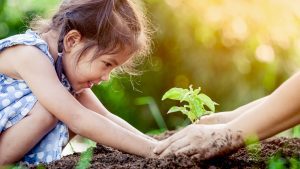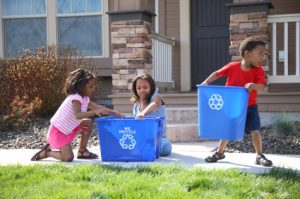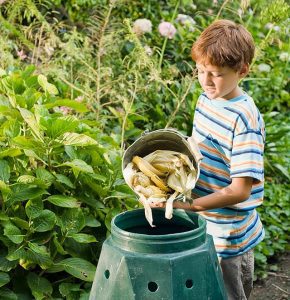
Children love being in nature! In California, we have beaches, mountains, redwoods, ski slopes, and more! Many of our families take advantage of being outside every chance they get! How can we, as parents, learning coaches, and teachers, transform this love for the outdoors into a life-long commitment to caring for our planet? Creating these meaningful connections between the environment and your scholars is not as hard as it may seem.
This week as we celebrate National Environmental Education Week and Earth Day tomorrow, here are 10 easy, everyday tips we can use to teach our scholars to respect and care for the environment!
1. Conserve Water
When brushing your teeth, turn off the water in between.
Take shorter showers.
Show your scholars how to water a lawn and garden properly.
2. Turn of the Power
Turn off the lights when you leave the room.
Turn off the television if no one is watching.
Shut off the air conditioner if the weather is not too warm.
Use energy-saving light bulbs. These are only marginally more expensive than incandescent bulbs and practically pay for themselves by saving you money on the electric bill!
Use rechargeable batteries; avoid using hundreds of single-use batteries.
3. Close the Door
Keep your doors to the outside closed so that you do not let the air conditioning or heat escape.
Do not leave the refrigerator open for too long while deciding what to eat.
4. Start a Garden

Start simple, with window-box herbs.
Also, dedicate a section of your backyard to grow broccoli, lettuce, tomatoes, and more.
Involve scholars in cooking with the harvest.
Plant a leafy tree in your yard or neighborhood and water it regularly.
Use eco-friendly pesticides in your garden.
Plant a special garden with flowers that attract butterflies.
Build a bird feeder and hang it in your backyard.
5. Avoid Disposables
Use recyclable containers when packing meals, snacks, etc.
Use cloth napkins for dinner.
Carry a handkerchief instead of paper tissues.
Use non-toxic cleaners in your home and explain to your scholars why these are better for the environment.
6. Recycle

Recycle everything you can, plastic bottles, plastic bags, newspapers, glass, cans, foil, etc.
Teach your scholars what can be recycled instead of becoming household waste.
Lead by example; buy products made with recycled ingredients.
During weekends collect cans and plastic bottles and exchange them at recycling centers. Use the money for a good cause.
7. Reuse
Clean out jars and reuse them as drinking glasses.
Use empty paper towel rolls in your scholar’s next art project.
Turn empty plastic containers with tight-fitting lids into under-sink compost bins.
8. Compost

Composting is the process of turning your trash (like kitchen or yard waste) into reusable soil for your garden, which keeps this trash out of landfills and water treatment facilities.
Teach your scholars what can and can’t be used for garden compost.
Have them sort the food waste.
Show them the composting process as it is happening.
Teach your scholars to use the fertilizer in your window boxes and garden.
9. Give “Experience” Gifts
Toys break, or children get sick of them quickly, and they end up in a landfill.
Take them rock climbing, camping, hiking, etc.
Museums, art institutes, and science centers also make great family gifts – and future memories.
10. Commit to Caring
Subscribe to eco-friendly blogs, communities, and newsletters and keep reading the latest news and discussions about going green and eco-friendly living.
Join wildlife conservation organizations and environmental conservation organizations and volunteer for the programs.

